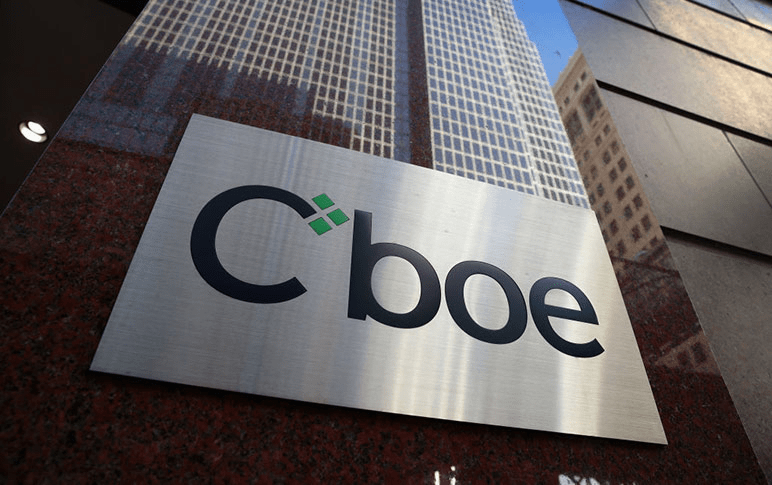Cboe BZX Files for Injective-based ETF Alongside Solana Fund Proposal
29.07.2025 10:30 1 min. read Kosta Gushterov
The Cboe BZX Exchange has submitted a filing with the U.S. Securities and Exchange Commission (SEC) seeking approval for a new exchange-traded fund (ETF) that would track Injective’s native token (INJ).
The proposed product, named the Canary Staked INJ ETF, is sponsored by Canary Capital Group LLC, which initially introduced the concept earlier this month.
The filing marks a continued push toward expanding crypto ETF offerings in the U.S. market, particularly beyond Bitcoin and Ethereum. The INJ-based fund would give investors direct exposure to the Injective ecosystem through a regulated investment vehicle, should it receive SEC approval.
On the same day, Cboe BZX also filed a registration for the Invesco Galaxy Solana ETF, reinforcing the trend of major asset managers pursuing spot ETFs for alternative Layer 1 blockchain tokens. Interest in a spot Solana ETF has grown steadily following similar proposals from firms like VanEck and 21Shares.
Both ETF proposals were submitted using the SEC’s standard two-step process, which includes an initial 19b-4 filing by the exchange followed by a corresponding S-1 or trust registration by the sponsor. These filings are the formal beginning of the regulatory review cycle.
The simultaneous filings for both INJ and SOL ETFs reflect a broader shift in the crypto investment landscape, as asset managers race to bring new blockchain-native assets into the traditional financial system through compliant, exchange-traded structures.
-
1
These Are the Most Trending Altcoins Right Now, According to CoinGecko
14.07.2025 14:30 1 min. read -
2
Over $5.8 Billion in Ethereum and Bitcoin Options Expired Today: What to Expect?
18.07.2025 16:00 2 min. read -
3
Top 7 Crypto Project Updates This Week
19.07.2025 18:15 3 min. read -
4
Ethereum Reclaims $3,000: What’s Driving the Renewed Bullish Momentum?
14.07.2025 10:57 2 min. read -
5
Ondo Price Breakout Confirms Bullish Trend: What’s the Target in Sight
16.07.2025 8:34 2 min. read
Bonk Price Prediction: BONK Nears Key Area of Support – Is It Ready for a Big Bounce?
Bonk (BONK) has gone down by 7.6% in the past 24 hours and currently stands at $0.00002800. Although the token has been on a downtrend for a few days, it is approaching a key area of support that could favor a bullish Bonk price prediction. Trading volumes have gone down by 18% during this period, […]
Santiment Highlights 6 Most Discussed Altcoins Amid Crypto Volatility
As Bitcoin and the broader altcoin market continue to swing unpredictably, blockchain analytics firm Santiment has identified six altcoins that have sparked intense interest across social media platforms.
Ethereum Turns 10: Celebrating the Genesis Block That Changed Crypto Forever
On this day ten years ago—July 30, 2015—a revolutionary chapter in blockchain history began.
Standard Chartered: Ethereum Treasury Firms Now Form a Distinct Investment Class
A new report from Standard Chartered highlights that publicly traded companies holding Ethereum (ETH) as a treasury asset have emerged as a unique and fast-evolving asset class, distinct from traditional crypto vehicles such as ETFs or private funds.
-
1
These Are the Most Trending Altcoins Right Now, According to CoinGecko
14.07.2025 14:30 1 min. read -
2
Over $5.8 Billion in Ethereum and Bitcoin Options Expired Today: What to Expect?
18.07.2025 16:00 2 min. read -
3
Top 7 Crypto Project Updates This Week
19.07.2025 18:15 3 min. read -
4
Ethereum Reclaims $3,000: What’s Driving the Renewed Bullish Momentum?
14.07.2025 10:57 2 min. read -
5
Ondo Price Breakout Confirms Bullish Trend: What’s the Target in Sight
16.07.2025 8:34 2 min. read


